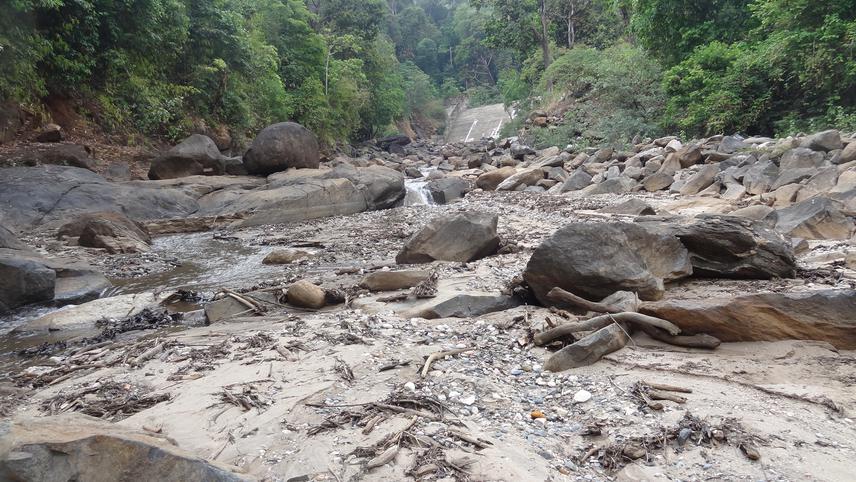Suman Raja Jumani
Other projects
12 Aug 2019
An Index-Based Approach for Basin-Wide River Conservation and Restoration Planning
We aim to assess the broad ecological and social impacts of extensive small dam development within the Western Ghats of Karnataka – part of a global biodiversity hotspot that has one of the largest densities of small dams in India.

Dewatered stretch of a small dam in Western Ghats, Karnataka.
In the face of rising energy demands, limited reserves of fossil fuels and concerns over global climate change, small hydropower projects (SHPs) are being widely encouraged as a source of renewable energy to meet our rapidly escalating energy needs in a sustainable manner. SHPs are seen as having negligible or no environmental impacts since they are believed to have no emissions and small areas of submergence. SHPs are also thought to be socially beneficial since they have minimal resettlement and rehabilitation issues, and since they offer local communities benefits of employment generation, infrastructure development and distributed electricity supply. Due to these reasons, their growth is being globally encouraged through easing policy procedures and various monetary incentives.
However, this green-image is being increasingly questioned by scientists on the grounds that most assessments overlook numerous factors and fail to consider cumulative impacts.
In India, small hydropower projects (capacity between 2MW-25MW) are legally exempted from requiring environmental clearances, and hence do not conduct any environment impact assessments or local stakeholder consultations. Additionally, massive economic incentives are offered to promote their growth. Hence this sector has witnessed a massive growth in the past decade. Of the 6474 sites that have been identified for SHP development in India, 834 sites fall within the State of Karnataka.
In this project, we aim to assess the broad ecological and social impacts of extensive small dam development within the Western Ghats of Karnataka – part of a global biodiversity hotspot that has one of the largest densities of small dams in India. All small dams – commissioned and under implementation – will be mapped with their approach roads, transmission lines, penstock canals and other ancillary infrastructure. Indices of forest fragmentation and river fragmentation will be calculated at various spatial scales to provide a holistic perspective of SHP development at the landscape level. We will also assess the socio-ecological impacts of small dams on local communities. All information pertaining to ecological and social consequences of SHP development in India will be condensed into a documentary film. This will enable scientific knowledge to reach stakeholders in an easy-to-understand medium, and help bridge the information gap between researchers and policy makers.